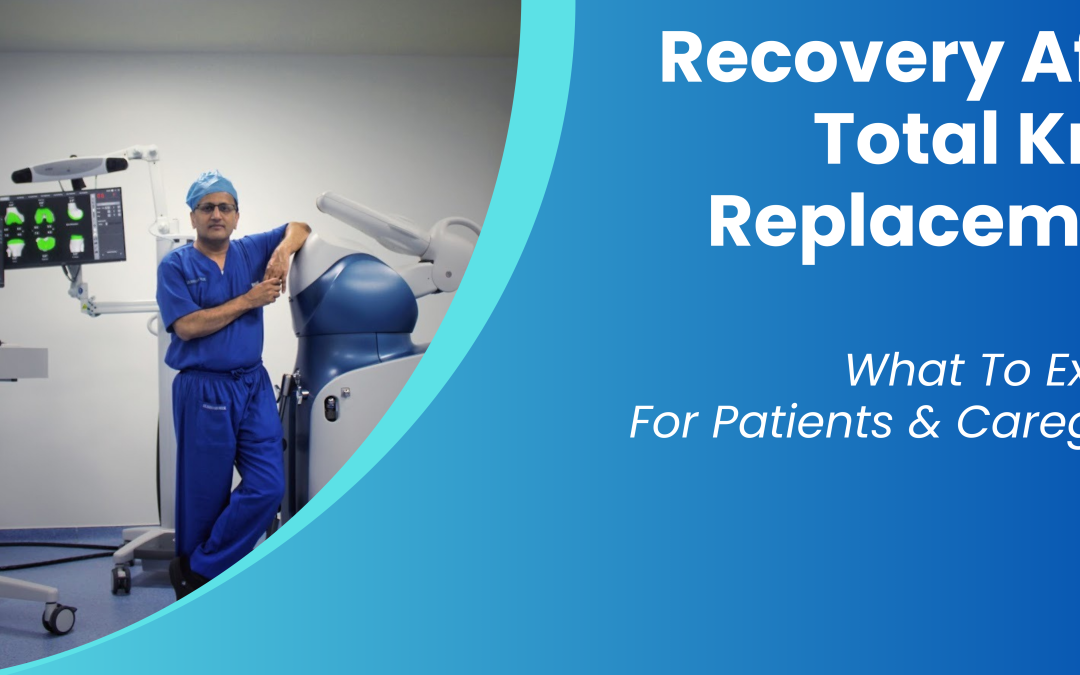Introduction
Total knee replacement surgery can significantly improve quality of life for individuals suffering from chronic knee pain, osteoarthritis, or joint degeneration. But success doesn’t end with surgery—it continues through the recovery process.
In this article, Dr. Hulse—an experienced orthopedic surgeon specializing in knee and hip replacements—explains what patients can expect during recovery after total knee replacement, from the first day post-op to the months that follow.
Recovery Timeline: Week-by-Week
Week 1–2: Initial Healing and Mobility
Hospital stay typically lasts 1–2 days (some may go home the same day)
Physical therapy begins within 24 hours of surgery to regain mobility.
Key goals: pain control, swelling reduction, and movement initiation.
Assistive devices like a walker or crutches are used.
Dr. Hulse’s Tip: “Stay on top of pain management. Movement is easier when pain is controlled and inflammation is reduced.”
Week 3–6: Building Strength and Range of Motion
Most patients transition to outpatient physical therapy.
Ability to bend the knee improves—goal is 90–120 degrees of flexion.
Walking without a walker becomes more common.
Driving may resume around Week 4 (if right leg wasn’t operated on and no narcotics are used).
Week 7–12: Resuming Daily Life
Patients walk more independently and confidently.
Strength and stamina improve steadily.
Return to light activities like grocery shopping, cooking, or low-impact exercise.
3–6 Months: Returning to Full Function
Swelling continues to decrease.
Pain is typically minimal or fully resolved.
Patients return to hobbies like golfing, biking, or gardening.
6–12 Months: Full Recovery
For many, this marks the return to a fully active lifestyle.
Knee strength and flexibility continue to improve.
Scar tissue softens and range of motion may still increase.
5 Tips for a Smoother Knee Replacement Recovery
1. Follow Your Physical Therapy Plan Religiously
Missing sessions or skipping home exercises slows recovery. Therapy helps prevent stiffness and strengthens your joint.
2. Keep the Joint Elevated and Iced
This reduces inflammation and helps you manage pain without overreliance on medications.
3. Eat a Recovery-Friendly Diet
Fuel your body with protein, leafy greens, fruits, and whole grains. Avoid processed foods that can slow healing.
4. Watch for Warning Signs
Call your doctor if you notice signs of infection such as fever, warmth at the incision, or unusual drainage.
5. Be Patient with Progress
Each person heals at a different pace. Track your own improvement—not someone else’s.
Common Mistakes to Avoid During Recovery
Doing too much, too soon: Overexertion can lead to injury or swelling setbacks.
Skipping medications: Especially in the first few weeks, staying ahead of pain helps you stay mobile.
Neglecting hydration: Water helps flush out toxins and supports joint health.
Avoiding stairs altogether: With guidance, light stair use can aid in mobility.
Always follow Dr. Hulse’s recovery plan, including restrictions and safe movement techniques.
Role of Caregivers in Recovery
Family members and caregivers play a vital role in early recovery, especially the first two weeks. They may help with:
Medication reminders
Meal prep
Transportation to therapy
Emotional support
Dr. Hulse encourages caregivers to be educated in post-op protocols to promote faster, safer healing.
Frequently Asked Questions (FAQs)
Q: How long does it take to walk normally after knee replacement?
A: Most patients walk independently in 4–6 weeks and improve further with therapy.
Q: Is pain normal after surgery?
A: Yes. Moderate pain is expected during early healing but improves significantly with therapy and time.
Q: When can I return to work?
A: For desk jobs, 4–6 weeks is typical. Jobs involving physical labor may require 8–12 weeks.
Q: Can I kneel on the replaced knee?
A: It’s possible, but some patients experience discomfort. Dr. Hulse can guide you based on your specific case.
Why Choose Dr. Hulse for Your Knee Replacement?
Globally trained orthopedic surgeon
Expertise in minimally invasive and robotic-assisted techniques
Compassionate, personalized care before, during, and after surgery
Proven track record of successful outcomes in over 8000 cases
Contact Dr. Hulse
Fortis Hospital
080- 66214444

